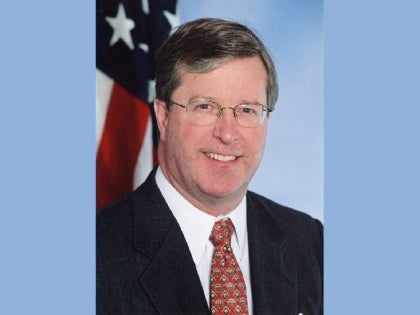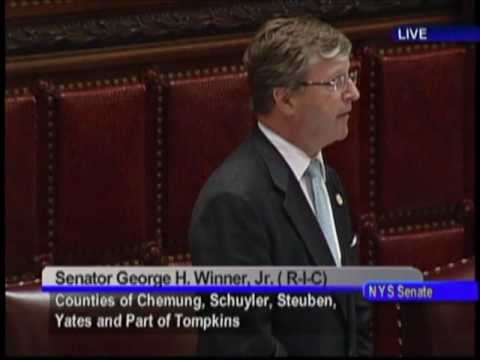
Senate Approves Legislation To Strengthen Medicaid Fraud Detection Efforts

Albany, N.Y.-- The New York State Senatehas approved legislation to initiate a comprehensive overhaul of the state’s Medicaid fraud detection efforts, a move that State Senator George H. Winner, Jr. (R-C, Elmira) believes would save state taxpayers hundreds of millions of dollars and greatly improve the accountability, integrity and quality of New York’s $44-billion Medicaid program.
"This year’s Medicaid reform actions have been significant so far, but we can’t stop here. Our work on Medicaid reform is not finished," said Winner, a sponsor of the Senate legislation. "The Senate hopes to create an independent office to focus on Medicaid fraud, waste and abuse."
Winner said that the Senate secured $1 million in the 2005-06 state budget to create a Medicaid Inspector General, a new, independent office to consolidate, restructure and streamline the state’s efforts to detect, investigate and prosecute Medicaid fraud. These efforts are currently divided between the state health department and attorney general.
Late last week, for example, the attorney general’s office reported that 11 pharmacies in New York State have agreed to reimburse $6.7 million to the Medicaid system for overbilling and other irregularities. Winner pointed to last week’s announcement as an example of the kinds of savings that can be found in Medicaid and that warrant an approach like the Senate’s.
"We believe that we don’t even begin to uncover the kinds of savings that could be achieved through a more concentrated, aggressive Medicaid fraud and waste detection effort," Winner said.
State Assembly leaders have so far rejected the idea of a Medicaid Inspector General. The Senate will continue to make legislation establishing the new office a priority and pursue ongoing negotiations with the Assembly on it.
The cornerstone of the Senate’s proposal is the creation of a state-of-the-art computer fraud detection system.
The federal General Accounting Office (GAO) estimates that fraud accounts for at least 10 percent -- and possibly as much as 30 percent -- of Medicaid expenses in states across the nation. Fighting fraud is considered so important that the federal government contributes 75 percent of the cost of fraud-fighting units in each state, while states fund the balance.
Nonetheless, according to recent federal reports, New York ranks alone among the nation’s 10 most populous states in spending more on anti-fraud efforts than it recovers. From 2001 to 2003, New York’s Medicaid Fraud Control Unit, which prosecutes fraud and recovers illicit gains, posted 72 cents in recoveries for every dollar spent by state and local governments on fraud recovery, according to a review of filings with the federal Department of Health and Human Services. By contrast, the state of Texas recouped five times its anti-fraud spending. New Jersey regained six times its investment.



